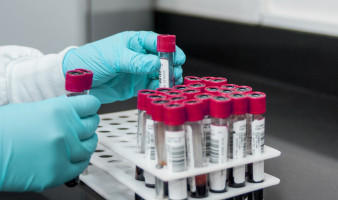
With drug resistance a major challenge in the fight against cancer, a discovery by University of California, Irvine biologists could offer new approaches to overcoming the obstacle.
Their research reveals that a mechanism enabling the diseased cells to scavenge dead cell debris for nourishment holds a pivotal role.
The study by Aimee Edinger, professor of developmental & cell biology, and researcher Vaishali Jayashankar appears in Nature Communications.
"Cancer cells require a tremendous amount of nutrients," Edinger said.
"Chemotherapy and other treatments that damage DNA force tumour cells to rev up their metabolism to make the repairs necessary to survive and grow. Targeting DNA metabolism in this way often works for a while, but in virtually all patients, tumour cells become resistant and the treatment becomes ineffective."
In probing the problem, the two scientists examined a process called macropinocytosis.
It enables a cancer cell desperate for nourishment to scoop up dead cell material within a tumour and feed on it.
"Tumours contain a lot of dead cells because the blood supply is abnormal, causing many cancer cells to starve to death," Edinger said.
"Using this method of scavenging, cancer cells can obtain the amino acids, sugars, fatty acids and nucleotides they require to keep growing."
This new research revealed that macropinocytosis makes a previously unappreciated contribution to breast cancer drug-resistance.
Edinger and Jayashankar also demonstrated that the same process could thwart treatments for pancreas and prostate cancer.
"What we see is that blocking macropinocytosis can help us to treat many different cancers more effectively," Edinger said.
"This knowledge could enable better biomarker selection in clinical drug trials currently underway, leading to improved response to pharmaceutical combinations. It also provides a strong rationale for developing drugs that target and block macropinocytosis."
Source: UCI
We are an independent charity and are not backed by a large company or society. We raise every penny ourselves to improve the standards of cancer care through education. You can help us continue our work to address inequalities in cancer care by making a donation.
Any donation, however small, contributes directly towards the costs of creating and sharing free oncology education.
Together we can get better outcomes for patients by tackling global inequalities in access to the results of cancer research.
Thank you for your support.